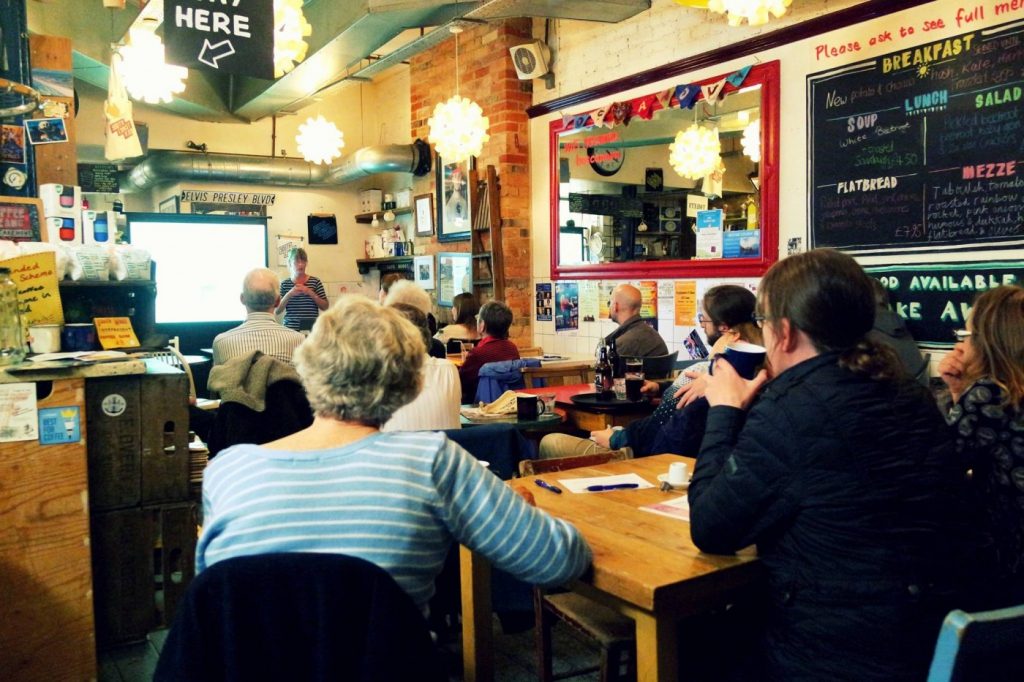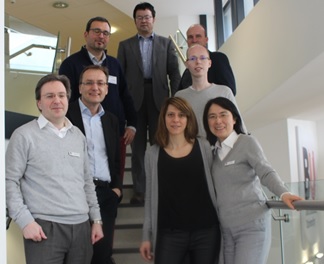 On Wednesday, 7th February 2018, BU’s Research and Knowledge Exchange Office will be facilitating a STEAMLab event on Global Challenges, attended by staff from the Royal Institute of International Affairs (Chatham House), Academics from throughout the M3 universities and other organisations.
On Wednesday, 7th February 2018, BU’s Research and Knowledge Exchange Office will be facilitating a STEAMLab event on Global Challenges, attended by staff from the Royal Institute of International Affairs (Chatham House), Academics from throughout the M3 universities and other organisations.
Which means…?
We’re seeking to come up with novel research that could form part of the UK’s Official Development Assistance (ODA) commitment.
So, who should attend?
We want anyone who thinks they might have something to contribute, and who is available all day on Wednesday 7th February to come along. We will also be inviting relevant external attendees to contribute to the day. We welcome academics, NGO/business/government representatives who wish to contribute to having a positive impact through addressing the world’s global challenges.
What do I need to prepare in advance? What will the sandpit entail?
Absolutely nothing in advance. During the STEAMLab, you’ll be guided through a process which results in the development of research ideas. The process facilitates creativity, potentially leading to innovative and interdisciplinary research ideas. These ideas will be explored with other attendees, and further developed based on the feedback received.
What if I don’t have time to think about ideas in advance?
You don’t need to do this. Some inspiring speakers with a range of backgrounds will be coming along to give you ideas…
What about afterwards? Do I need to go away and do loads of work?
Well… that depends! The STEAMLab will result in some novel research ideas. Some of these may be progressed immediately; others might need more time to think about. You may find common ground with other attendees which you choose to take forward in other ways, such as writing a paper or applying for research funding. Support will be available to progress project ideas after the day.
What if my topic area is really specific, such as health?
Your contribution will be very welcome! One of the main benefits of a STEAMlab event is to bring together individuals with a range of backgrounds and specialisms who are able to see things just that bit differently to one another.
So, is this just networking?
Definitely not! It is a facilitated session with the primary intention of developing innovative research ideas, which also enables the development of networks. It gives you the opportunity to explore research ideas which you may develop over time, together with the chance to find common ground with academics from across BU and beyond.
So, how do I book onto this event?
To take part in this exciting opportunity, all participants should complete the Global Challenges STEAMLab Application Form and return this to RKEDevFramework@bournemouth.ac.uk by Thursday, 18th January. Places are strictly limited and you will be be contacted to confirm a place place on the STEAMLab with arrangements nearer the time. The event will be held in Bournemouth at the Executive Business Centre.
By applying, you agree to attend for the full duration of the event on 7th February (c. 9:30 – 16:30). Spaces will be confirmed on 22/1/18.
If you have any queries prior to submitting your application, please contact Ehren Milner, RKEO Research Facilitator.


 e and Impact Team, we have a lot of experience in finding the right audience to invite to a public engagement event.
e and Impact Team, we have a lot of experience in finding the right audience to invite to a public engagement event. 




 This workshop will cover what should be considered about Intellectual Property (IP) when establishing links with industry for research purposes. Included in the conversation will be background IP, protecting work by copyright and techniques and available tools for sharing future (foreground) IP that may result from research. A pragmatic view will be presented and informal advice will be offered to attendees.
This workshop will cover what should be considered about Intellectual Property (IP) when establishing links with industry for research purposes. Included in the conversation will be background IP, protecting work by copyright and techniques and available tools for sharing future (foreground) IP that may result from research. A pragmatic view will be presented and informal advice will be offered to attendees.
 Every BU academic has a
Every BU academic has a  By clicking on this box, on the left of the Research Blog home page just under the text ‘Funding Opportunities‘, you access a
By clicking on this box, on the left of the Research Blog home page just under the text ‘Funding Opportunities‘, you access a 
 The FIRST Project kick-off meeting participants at BU[/caption]
The FIRST Project kick-off meeting participants at BU[/caption]












 New Nepal scoping review on maternal & neonatal health
New Nepal scoping review on maternal & neonatal health Fourth INRC Symposium: From Clinical Applications to Neuro-Inspired Computation
Fourth INRC Symposium: From Clinical Applications to Neuro-Inspired Computation Writing policy briefs
Writing policy briefs Upholding Excellence: The Concordat to Support Research Integrity
Upholding Excellence: The Concordat to Support Research Integrity ECR Funding Open Call: Research Culture & Community Grant – Application Deadline Friday 12 December
ECR Funding Open Call: Research Culture & Community Grant – Application Deadline Friday 12 December MSCA Postdoctoral Fellowships 2025 Call
MSCA Postdoctoral Fellowships 2025 Call ERC Advanced Grant 2025 Webinar
ERC Advanced Grant 2025 Webinar Horizon Europe Work Programme 2025 Published
Horizon Europe Work Programme 2025 Published Horizon Europe 2025 Work Programme pre-Published
Horizon Europe 2025 Work Programme pre-Published Update on UKRO services
Update on UKRO services European research project exploring use of ‘virtual twins’ to better manage metabolic associated fatty liver disease
European research project exploring use of ‘virtual twins’ to better manage metabolic associated fatty liver disease